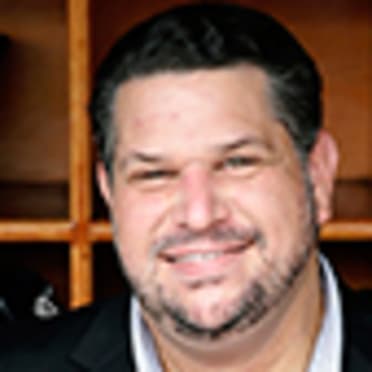Dick Allen watched Thursday as his No. 15 was unveiled above Ashburn Alley, the Phillies’ newest retired number cementing his status as one of the franchise’s legendary figures.
John Middleton and the Phillies are hoping there will be a bigger ceremony in Allen’s future, specifically one approximately 270 miles to the north, in Cooperstown, N.Y.
“Retiring Dick’s number is a very big deal for Dick,” Middleton, the club’s managing partner, said during the pregame ceremony. “But it is also a very big deal for the Phillies, for Philadelphia and, I hope, even for baseball.”
Thursday’s ceremony took place in front of the Phillies' Wall of Fame (where Allen was inducted in 1994), with a group of socially distanced luminaries -- most wearing light blue “Allen 15” Phillies masks -- including former teammates Larry Bowa, Larry Christenson, Garry Maddox, Cookie Rojas and Bill White.
“The biggest thanks to John Middleton,” the 78-year-old Allen said. “Nothing pleases me more than to imagine what it would do for my mother as it is for the rest of my whole family.”
Hall of Famer Mike Schmidt spoke of collecting Allen’s baseball cards as a kid, then having an opportunity to watch Allen up close for the first time.
“It was a sight to behold, Dick and his batting stance,” Schmidt said. “It still lives on today around baseball; Dick Allen’s stance is one of the greatest, most unusual and unbelievable things to watch in baseball history.”
Award-winning producer Mike Tollin, who is working on a documentary about Allen, joined Middleton and Schmidt as the ceremony’s featured speakers. Tollin first met Allen while attending Stanford, getting a press credential for the school’s radio station to cover a game in Oakland, where Allen was playing what turned out to be the final year of his career.
“It wasn’t his gaudy, Rookie of the Year statistics, though, that we remember,” Tollin said. “It was the way he strode to the plate in that baggy, red pinstriped uniform, that number 15 so crisp and clean on the back of his jersey, and that 40-ounce war club by his side. Every time he came to bat, there was a chance he’d hit one over the roof at old Connie Mack.”
Dressed in a black suit with a black shirt and grey handkerchief, Allen smiled and shook his head as he listened to the trio shower him with praise.
Allen was a seven-time All-Star, winning the 1964 National League Rookie of the Year Award and '72 American League MVP honors, the latter as a member of the White Sox. He finished his 15-year career with a .292/.378/.534 slash line, 351 home runs and 1,119 RBIs.
But no retrospective on Allen’s career would be complete without a mention of the adversity he faced, specifically at the hands and voices of his own home fans. Many Philadelphia fans harassed him with racial epithets and even threw things at him on the field, prompting him to begin wearing a helmet when he played defense.
“Dick did the wrong thing; he became the best player on his team,” Schmidt said. “He became the star of the team. He was a sensitive Black man who refused to be treated as a second-class citizen.”
“It makes the extraordinary achievement even more special when you consider the circumstances, the conditions under which he had to live and perform,” Middleton said.
Schmidt believes that the labels that were slapped on Allen -- bad teammate, troublemaker, etc -- “kept Dick Allen out of the Hall of Fame.” During Allen’s years on the ballot, he never received more than 18.9% of the vote in any given year.
“Dick has had to fight labels his entire life,” Schmidt said. “As we get into next year and the year after, we’re going to shake those labels loose, Dick, and do our best to let the Hall of Fame know that you deserve a spot in it.”
The majority of his games were played at first and third base, giving Middleton a chance to draw some comparisons with the game’s legends. Allen’s career WAR of 58.8 would be 10th among the 17 third basemen in the Hall and 14th among the 24 first basemen in Cooperstown.
Allen’s next chance to be elected to the Hall of Fame will come in 2021, when the Golden Days Committee has its next vote.
“Do I believe in my heart that he deserves to be in the Hall of Fame? Yes,” Middleton said. “Do I hope that someday he will be elected? Yes. I would like to see that happen while he's still alive and can enjoy the honor.”
Thursday, however, was about Allen’s contributions to Philadelphia, where he played from 1963-69, then again in '75-76.
“Should this moment have occurred years ago? Unquestionably yes,” Middleton said, explaining the club’s long-standing policy of retiring jerseys only after players are inducted in the Hall of Fame.
“As I thought about that policy and its impact on players like Dick, I remembered one of my favorite quotes,” Middleton continued. “Recently our country lost a great civil rights leader, but John Lewis’ memory will endure because of his lasting message to all of us; ‘When you see something that is not right, not fair, not just, you have to speak up. You have to say something. You have to do something.’
“Dick, your brilliance has compelled me to change our long-standing policy. Today, the Phillies organization is doing and saying something to correct what is historically not right, not fair, not just.
“You richly deserve this honor, Dick. You have earned it -- and no one can ever take this away from you.”


